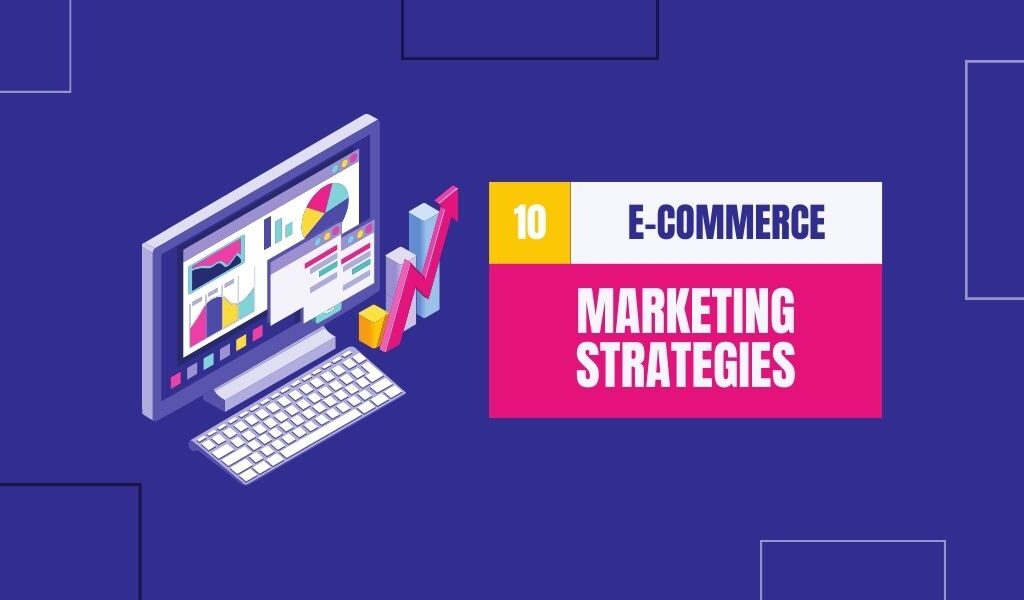
In the fast-paced world of e-commerce, effective marketing strategies are essential for businesses aiming to skyrocket their sales. With the ever-growing digital marketplace, competition is fierce, making it crucial to stand out and capture the attention of potential customers. This article will delve into a range of innovative and proven e-commerce marketing strategies designed to drive exponential growth in sales.
From harnessing the power of social media advertising and influencer partnerships to optimizing search engine visibility through SEO techniques, we will explore how to expand your online presence. Additionally, we will discuss the importance of personalized email marketing campaigns, leveraging data analytics for informed decision-making, and the role of user-generated content in building trust and engagement.
By implementing these strategies and staying attuned to emerging trends, e-commerce businesses can create a dynamic and compelling online presence that not only attracts new customers but also nurtures existing ones, ultimately propelling their sales to new heights.
Chapter 1: Understanding Your Audience
-
- The significance of knowing your target audience.
-
- Techniques for gathering customer data and insights.
-
- Creating detailed buyer personas.
Chapter 2: Website Optimization
-
- The critical role of website design and user experience.
-
- Strategies for improving site speed and mobile-friendliness.
-
- Optimizing product pages and the checkout process.
Chapter 3: Search Engine Optimization (SEO)
-
- The connection between SEO and e-commerce sales.
-
- Keyword research and optimization for product listings.
-
- Building high-quality backlinks for better search rankings.
Chapter 4: Content Marketing for E-commerce
-
- The role of content in e-commerce sales.
-
- Creating engaging product descriptions and blog content.
-
- Utilizing visuals and multimedia for product promotion.
Chapter 5: Email Marketing and Retention
-
- The power of email marketing in retaining and re-engaging customers.
-
- Building an email list and segmenting subscribers.
-
- Strategies for creating effective email campaigns.
Chapter 6: Pay-Per-Click (PPC) Advertising
-
- The benefits of PPC advertising for e-commerce.
-
- Creating and optimizing Google Ads and social media ads.
-
- Remarketing strategies to target previous visitors.
Chapter 7: Social Media Marketing for E-commerce
-
- Leveraging social media platforms for product promotion.
-
- Running paid ad campaigns on platforms like Facebook and Instagram.
-
- Encouraging user-generated content and reviews.
Chapter 8: Influencer Marketing
-
- The effectiveness of influencer marketing in e-commerce.
-
- Identifying and collaborating with relevant influencers.
-
- Measuring the ROI of influencer partnerships.
Chapter 9: E-commerce Analytics and Data
-
- Setting up e-commerce tracking in Google Analytics.
-
- Key performance indicators (KPIs) to monitor.
-
- Using data to make data-driven decisions and optimizations.
Chapter 10: Customer Reviews and Testimonials
-
- The impact of customer reviews on purchase decisions.
-
- Strategies for collecting and showcasing customer testimonials.
-
- Addressing negative reviews and maintaining transparency.
Chapter 11: Discounts, Offers, and Loyalty Programs
-
- Implementing special promotions and discounts.
-
- Creating customer loyalty programs to encourage repeat purchases.
-
- The psychology of discounts and urgency.
Chapter 12: International E-commerce Strategies
-
- Expanding into international markets and audiences.
-
- Handling currency, shipping, and language considerations.
-
- Localized marketing and SEO.
Chapter 13: Customer Support and Feedback
-
- The importance of excellent customer support.
-
- Gathering and acting upon customer feedback.
-
- Using feedback for product improvement.
Chapter 14: Mobile Commerce (M-commerce)
-
- The rise of mobile shopping and its significance.
-
- Ensuring a seamless mobile shopping experience.
-
- Mobile app development for e-commerce.
Chapter 15: Measuring and Scaling Success
-
- Tracking and measuring the success of e-commerce marketing strategies.
-
- Scaling successful strategies for growth.
-
- Adapting to changing consumer behaviour and industry trends.
E-commerce marketing stands as a dynamic and indispensable force in the digital marketplace. It is the engine driving success for businesses in an era where online shopping has become a fundamental part of our lives. The strategies and tactics employed in e-commerce marketing are diverse and ever-evolving, but they all share a common goal: to connect products or services with the right audience, driving sales and growth.
E-commerce marketing thrives on data-driven decision-making, personalized customer experiences, and innovative techniques. It enables businesses to reach global audiences, harness the power of social media, optimize search engine visibility, and leverage emerging technologies like AI and AR.
In an increasingly competitive online landscape, the ability to adapt, innovate, and provide exceptional value to customers is key. E-commerce marketing not only facilitates brand visibility but also builds trust, loyalty, and lasting customer relationships. For businesses willing to invest in creativity, technology, and customer-centric approaches, e-commerce marketing remains a pathway to sustained growth, market relevance, and digital success.
Additional Resources
Recommended books, courses, and websites for further learning.
Contact information for your digital marketing agency specializing in e-commerce marketing.



Leave a Comment